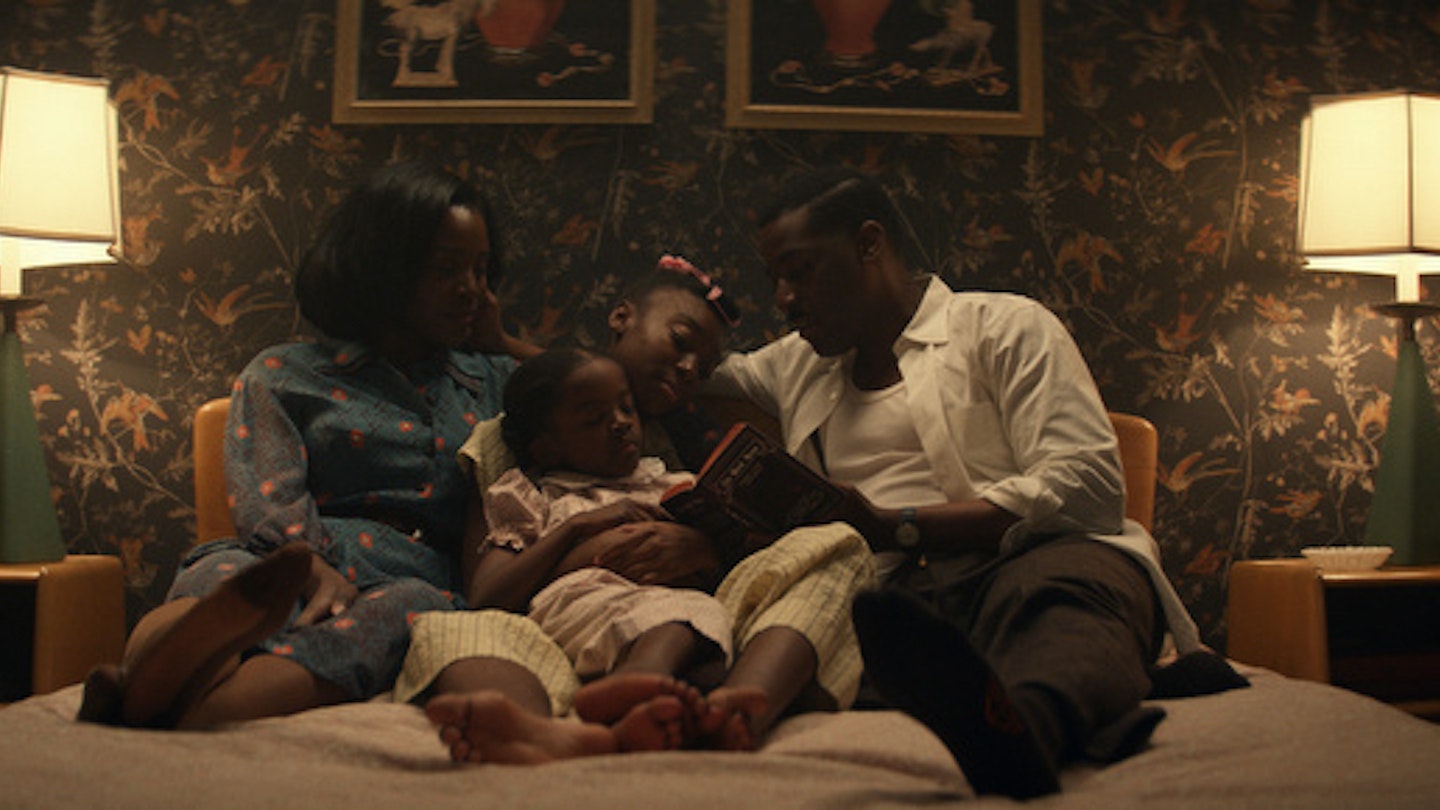How much pain is too much? In Them, the tolerance bar is high. Created by Little Marvin and co-executive produced by Lena Waithe, this horror anthology series, set within a ten-day timeline, hurtles viewers headfirst into thick molasses of Black pain and generational bigotry, only intensified by capitalism and otherworldly afflictions. Them’s approach — Suburbicon by way of The Shining — provides an intriguing premise, albeit a harrowing one.
Owing more than a little to Ryan Murphy’s American Horror Story, Them delivers an unapologetically Black family who stick out against the pastel décor of their despicable neighbours. Henry (Ashley Thomas) is hounded at his workplace. Wife Lucky (Deborah Ayorinde) is persecuted by the Stepford-adjacent housewives of the community. Their kids Gracie (Melody Hurd) and Ruby (Shahadi Wright Joseph) face the torment of being the only Black kids in their schools. Them fast-tracks through a whirlwind of themes including redlining (discriminatory raising of property prices), harassment, war trauma and loss. The hatred is unsubtly strong, and Herculean efforts are required to quell the anger and pain the family undoubtedly harbour.

It is bad for them and exhausting for an audience. Them pummels viewers with Black trauma in nearly every scene with little respite, resulting in a discomforting horror that is almost off-putting. The show’s biggest strengths lie in its aesthetics, chiefly with the show’s delectable look. From Saul Bass-inflected main titles to the corridors and basements hiding all manner of nastiness in the shadows, Them does not skimp on design. Also, the formidable cast infuse their roles with energy. Both Thomas and Ayorinde give forceful turns as the parents, Pat Healy (Cheap Thrills) comes into his own as an embittered, selfish bigot in later episodes, while elsewhere it is certainly destabilising to see the drummer of Sex-Bob-omb (Alison Pill) play a hideous racist so effectively.
The Emorys are battered from all sides —guilt-ridden over their past, berated in their present and haunted by phantasms within the distinctly short timeline of events. An eclectic group of directors (including Ti West, Nelson Cragg and Craig William Macneill) are adept at building tension, generating startling moments, and utilising the lenient luxury of elastic timekeeping that streaming services can provide, the shorter episodes being the most beguiling. However, Them delivers no moments of levity, while the narrative is disjointed. Individual scenes hop back through the 1940s and the 1800s, highlighting a racial hatred embedded into the spiritual fabric of America. The reluctance to show any lightness evokes the claustrophobic atmosphere of shows like The Handmaid’s Tale. Them is a series of beautifully visualised ugliness, which is engaging to watch but only in small doses — not ideal in the era of binge-watching. But even The Handmaid’s Tale allows its audience up for air.
